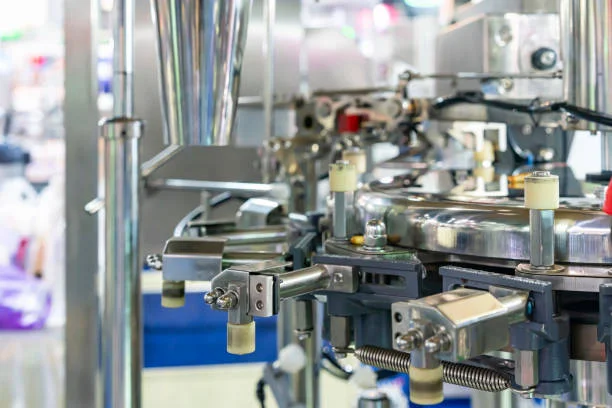Side Effect of Kuli Kuli in Nigeria & Its Health Benefits

Love Kuli Kuli? Here’s What You Need to Know About the Side Effect of kuli kuli. This delicious West African snack made from groundnuts, also known as peanuts, has gained popularity worldwide for its unique taste and nutritional benefits.
However, like any other food, Kuli kuli does have its side effects that you should be aware of.
While the positive aspects of Kuli kuli include being a good source of protein, vitamins, and minerals, excessive consumption can lead to certain health issues.
Some people may experience digestive problems, such as bloating and gas, due to the high fiber content in Kuli kuli. Additionally, consuming too much may contribute to weight gain, raising concerns about the side effect of Kuli kuli for weight loss.
Since Kuli kuli is made from groundnuts, individuals with nut allergies should exercise caution when consuming this snack. The side effects of Kulikuli oil can also impact those with specific dietary restrictions or sensitivities.
- The 4 Best Healthy Salt Substitutes to Reduce Sodium Intake
- The 3 Negative Effects of constant Masturbation
What is Kuli Kuli in English?
Kuli Kuli is commonly referred to as a peanut snack or groundnut cake in English. The name ‘Kuli Kuli’ is derived from the Hausa language, which is widely spoken in Nigeria.
Health Benefits of Kuli Kuli
Kuli Kuli is not just delicious, but it also offers several health benefits. Here are some reasons why you should consider adding Kuli Kuli to your diet:
Rich in Protein: Kuli Kuli is an excellent source of plant-based protein, making it a great snack option for vegetarians and vegans.
Good Source of Healthy Fats: Kuli Kuli is made from peanuts, which are naturally high in monounsaturated fats. These fats are beneficial for heart health and can help lower bad cholesterol levels. But is groundnut oil cholesterol-free? While it contains good fats, moderation is key.
Packed with Vitamins and Minerals: Kuli Kuli is a good source of various vitamins and minerals, including vitamin E, magnesium, and potassium. These nutrients play a crucial role in maintaining overall health and well-being. Peanut oil benefits for skin also make it a popular choice for skincare applications.
Boosts Energy: The combination of protein, healthy fats, and carbohydrates in Kuli Kuli makes it an excellent energy-boosting snack.
Another Name for Kuli Kuli
Kulikuli is another name for Kuli Kuli. It is the same delicious snack made from roasted peanuts.
Benefits of Kulikuli Oil
Kulikuli oil, also known as peanut oil, is extracted from roasted peanuts. It is commonly used in cooking and has several benefits:
High Smoke Point: Kulikuli oil has a high smoke point, which means it can withstand high temperatures without breaking down or producing harmful substances. This makes it suitable for various cooking methods, including frying and stir-frying.
Rich in Vitamin E: Kulikuli oil is a good source of vitamin E, a powerful antioxidant that helps protect cells from damage caused by free radicals.
Provides Healthy Fats: Kulikuli oil is predominantly made up of monounsaturated fats, which are considered heart-healthy fats. These fats can help reduce the risk of heart disease. However, is peanut oil inflammatory? Some studies suggest that excessive consumption may contribute to inflammation, so moderation is key.
Common Side Effects of Kuli Kuli Consumption
While Kuli kuli offers numerous health benefits, it’s essential to be aware of the potential side effects that can arise from excessive consumption. Some individuals may experience digestive problems, such as bloating and gas, due to the high fiber content in Kuli kuli.
Additionally, there are concerns about the side effects of Kulikuli for weight loss, as excessive intake may contribute to weight gain. If you’re wondering, “Is Kuli Kuli fattening?” the answer depends on portion control.
Allergic Reactions to Kuli Kuli
Since Kuli kuli is made from groundnuts, individuals with nut allergies should exercise caution. Severe allergies can lead to symptoms such as itching, hives, swelling, difficulty breathing, and even anaphylaxis. If you have a known allergy, avoid Kuli Kuli and be mindful of cross-contamination.
Potential Weight Gain from Kuli Kuli Consumption
While Kuli kuli is nutrient-rich, it’s important to be mindful of portion sizes, especially if you are watching your weight. The side effect of Kuli kuli for weight loss includes unwanted calorie intake, which may lead to weight gain if not balanced within a proper diet.
Impact on Blood Pressure and Cholesterol Levels
Kuli kuli is a good source of monounsaturated fats, which are known to have positive effects on heart health. However, excessive intake may lead to an increase in cholesterol levels, affecting cardiovascular health. So, is groundnut oil cholesterol-free? While it contains good fats, excessive use may not be ideal for those managing cholesterol levels.
Kuli Kuli and Its Side Effects on Pregnant Women
Pregnant women should be cautious with Kuli Kuli consumption due to its high fiber content, which may cause digestive issues like constipation. Additionally, nut allergies should be considered. Consulting a healthcare provider is recommended.
Other Side Effects to Consider
- Dose and Co side effects: While primarily related to supplements, understanding the impact of different dietary components is essential.
- Ranawara mal side effects: Though used in traditional medicine, it may have effects when combined with other foods.
- Side effects of Sarecycline: Those on antibiotics should be cautious about potential interactions with foods like Kuli Kuli.
- Serrazen Plus uses and Serrazen Plus side effects: Understanding supplements and their interactions with diet can be beneficial.
- Side effects of Kulikuli for hair: While some apply peanut oil to hair, allergic reactions should be considered.
- Side effects of groundnut oil: Excessive use may contribute to weight gain and inflammation.
How to Minimize the Side Effects of Kuli Kuli
To enjoy the nutritional benefits of Kuli kuli while minimizing potential side effects, here are some tips:
- Consume Kuli Kuli in moderation.
- Stay hydrated to aid digestion.
- Be aware of allergies and avoid if necessary.
- Balance calorie intake.
- Consult a healthcare professional if you have concerns, especially during pregnancy.
Conclusion on Side Effects of Kuli Kuli
Kuli kuli is a beloved West African snack with numerous nutritional benefits. However, understanding the side effect of Kuli kuli in Nigeria and beyond is essential for safe consumption. By staying informed about its effects, from weight management to cholesterol concerns, you can make the most of this tasty treat while maintaining a balanced diet.
Article updated 3 months ago ago. Content is written and modified by multiple authors.









